
With or without Bolton; US maximum pressure and economic war to continue
The ousting of John Bolton from his position as US National Security Adviser created hope among some people in Iran about the possibility of negotiations with America. But some believe that this decision by Donald Trump will not result in any change in the US policy of “economic war” against the Islamic Republic.
Before sacking Bolton, the Iranian Foreign Minister Mohammad Javad Zarif pretended that Trump was somewhat different from Pompeo and Bolton, trying to suggest that the maximum pressure campaign against Iran is what the so-called B-Team wants, and not Trump!
Apparently, differentiating between Trump and Bolton created an opportunity for Iran’s Supreme Leader Ali Khamenei to go back to the negotiation table with Trump, if he wanted to show some flexibility in this regard.
But now that Bolton is sacked, will there be any changes in Washington’s policies to create hope in Tehran for negotiations with America? The maximum pressure campaign has reached its peak. Even though Bolton played a role in its launch, the US State Department, Treasury Department, and US Department of Energy are actually in charge of the sanctions on Iran.
After Bolton was sacked, Iranian “reformists” are doing their best to make a case for negotiations with America. Mostafa Tajzadeh, Security Deputy in the former President Khatami’s government, tweeted: “No war, no negotiation means no war, no peace. It is useless and has taken many of our opportunities. We must fight this suffocating siege on our oil and banking sectors with a policy of no war, no sanctions. Negotiation is a tool, not a taboo. The goal must be to lift sanctions and to defeat economic terrorism.”
Meanwhile, a former diplomat of the Islamic Republic Fereydoun Majlesi wrote in Arman Melli that sacking Bolton might de-escalate the belligerence against Iran in the White House but hasn’t changed the US economic war against Iran.
With or without Bolton, the United States has the initiative. The Islamic Republic must now decide between a humiliating surrender and economic collapse.
Kayhan London
A possibility of the nuclear deal collapsing
The editorial of Roozan focuses on why Iran must stop taking further steps in reducing its obligations within the nuclear deal (JCPOA).
There is a danger that the nuclear deal might collapse as Germany, France, and Britain have expressed their concerns in this regard. These three countries have announced that they are worried about Iran’s moves to reduce its commitments in the JCPOA. The IAEA’s latest report confirmed the installation of new centrifuges – IR-5, IR-4, IR-6 – and IR-8 too might be installed.
As such, if the European Union doesn’t make any new moves, we must expect it to cut its relationship with Iran, as a result of which Iran will be isolated and European countries will move closer to America. In other words, this doesn’t mean anything other than Trump’s wish being fulfilled and Iran’s case being sent to the UN Security Council. It must be mentioned that Iran had been in this position before, which is why it had to give into negotiations in 2015.
But Iran is under economic pressure, and the government cannot meet public expectations. With the beginning of the educational year in Iran, society is active and energetic, but the government is not capable of living up to public demands.
Iran taking steps in reducing its commitments in the JCPOA is a kind of protest. But it is not clear how much longer this will go on. Let’s imagine that the 20th step is taken by Iran and uranium enrichment reaches 20%. First of all, this will not be tolerated by the European Union and America; second, the Iranian people will gain nothing.
Macron’s plan which invites both Iran and America to engage in flexible diplomacy must be taken seriously. The plan asks America to stop its sanctions and to allow Iran to launch the $15 billion credit fund that the European Union has guaranteed to sell Iran’s oil. Within the framework of this plan, Iran should have more flexibility towards negotiating with America.
Roozan – September 17
What has happened to the value of 24 million votes?
The editorial of Arman Melli asks why the Iranian President Hassan Rouhani, who was elected with 24 million votes, is not doing what is in his powers to defend public interests and rights.
Each activity, whether a plan, a competition, or a game has its own rules. Running a country with a democratic system, too, is no exception. One such rule is to respect the majority’s votes, and not to create hurdles for plans that have been passed by elected lawmakers.
It is not clear why in Iran – and particularly during Rouhani’s second term – the value of 24 million votes is not recognized.
Although the constitution of the Islamic Republic suffers from certain structural problems, the main problem is that the president himself does not use his powers as stipulated in the constitution.
The president takes an oath on the Quran to guard the official religion of the state, the establishment of the Islamic Republic, and the constitution. What has Rouhani done to fight superstition, the abuse of religion, or the violation of the constitution? Why hasn’t he fulfilled his campaign promises?
Rouhani has not made any clarifications regarding the following issues: Why some signatories of the nuclear deal didn’t fulfill their obligations; why tens of accords that were signed between Iran and other countries, as well as with companies, were not enforced in the aftermath of the nuclear deal; why there were no confrontations with those who created problems for the nuclear deal; given the fact that Iran is one of first 10 countries in the world with cultural and historical heritage, why there hasn’t been a reasonable level of tourism.
The current circumstances in Iran are either due to Rouhani and his government’s incompetence or to problems that the government’s rivals have created for it as well as to acts of sabotage that they have executed to undermine Rouhani’s plans. If it is the first case, the best option for Rouhani is to resign. And if it is the second case, he should talk openly to society about his problems and the hurdles that he is facing as well as about the acts of sabotage that have taken place to undermine his government. Rouhani must use the constitution in order to find a way out of the current situation.
Arman Melli – September 16
What is the message Iran can take from the sacking John Bolton?
The editorial of Hamdeli explains why Iran shouldn’t be too optimistic that the firing of John Bolton will have a positive impact on the Iran-America relationship.
Donald Trump fired his National Security Adviser John Bolton from his administration. It is said that his disagreement with Trump over the Afghanistan peace process was the main reason for his dismissal.
But it is unlikely that this disagreement is the only reason for sacking Bolton. The crisis in the Korean Peninsula, the trade war with China, Washington’s cold relationship with the European Union, and disagreements concerning how to deal with Tehran were among Trump’s main issues with Bolton.
But what is the message Iran can take from the sacking of John Bolton? Does it mean there will be an opening in the Tehran-Washington relationship? It is naïve for some to think that Bolton’s sacking will result in the problems between Tehran and Washington ending
Bolton wasn’t the only one among Trump’s advisers who are against Tehran. Bolton just accelerated decisions that were made against Iran. He was just one side of the White House’s policies against Tehran. The other side is Mike Pompeo.
With Bolton being sacked, it means that Pompeo will follow up on his hostile position more strongly. Ousting Bolton, therefore, mustn’t create too much optimism for improvements in the Tehran-Washington relationship.
On the other hand, Trump’s possible options to replace Bolton are not good news for Tehran. As can be seen, one possible option is Charlie Cooperman whose hostile policies towards Tehran and the nuclear deal are not milder than Bolton’s policies. If Trump appoints Cooperman, the maximum pressure campaign against Tehran will be certainly boosted with the cooperation of Pompeo and Cooperman.
What is more, firing Bolton is not adequate enough in showing flexibility to Tehran. A considerable part of decision-makers in Washington are conservatives and their views are similar to Bolton’s, and nothing less than bombing Iran will satisfy them.
Hamdeli – September 14

Khamenei: No negotiations with the US– neither in New York nor anywhere else
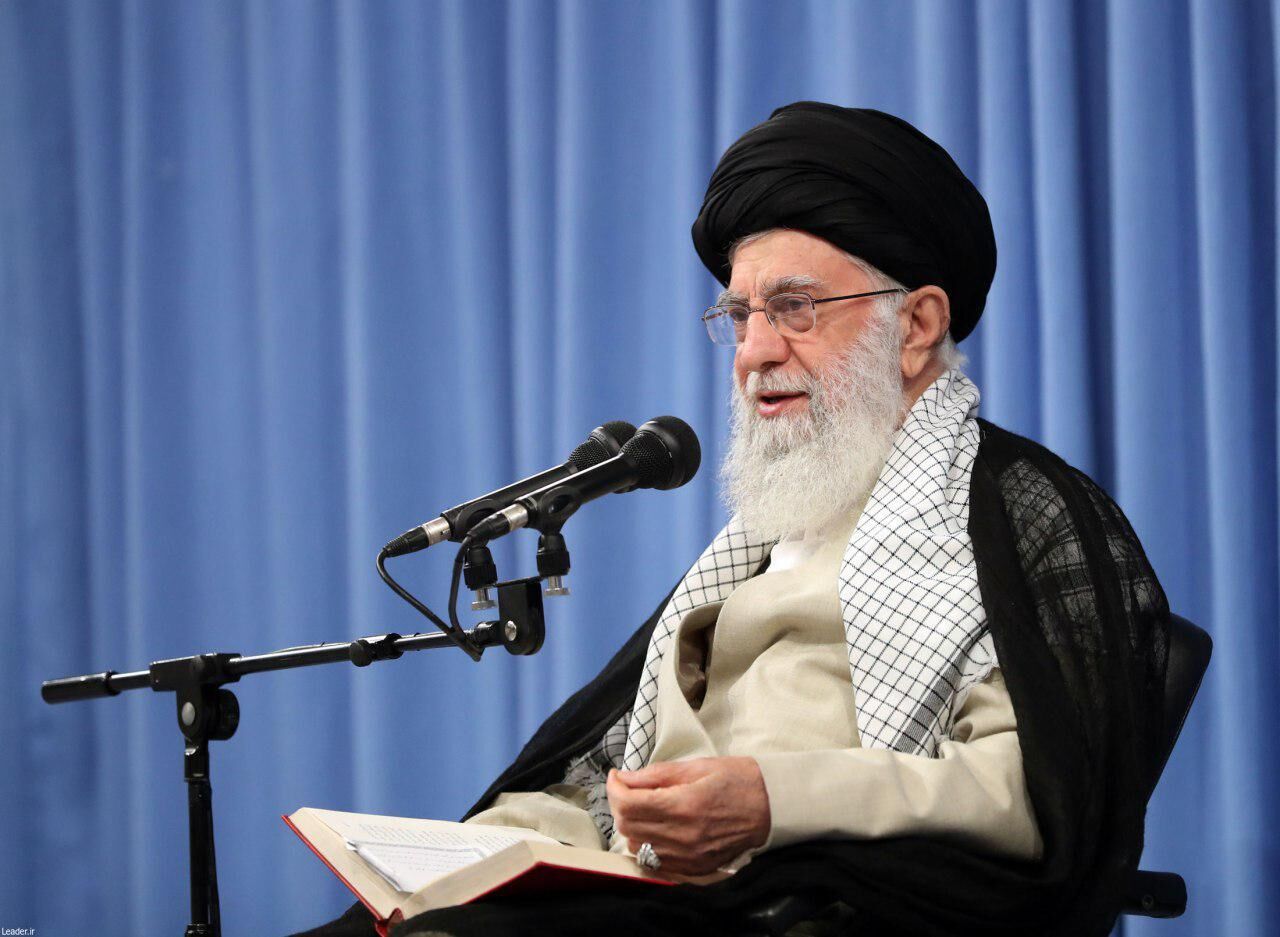
The Islamic Republic’s Supreme Leader Ali Khamenei has once again emphasized Iran’s reluctance to enter into negotiations with the United States. On the verge of the UN General Assembly in New York, Khamenei said there will be no negotiations between Iran and the US “neither in New York nor anywhere else.”
He continued to say that America uses this “trick of negotiations” in order to “impose” its demands and to “prove the effectiveness of its maximum pressure on Iran.” Khamenei stressed, “We should prove that maximum pressure against the Iranian nation is good for nothing.”
In reference to the Europeans, Khamenei said the reason why they insist on negotiations between Iran and America is that they want to demonstrate that maximum pressure against Iran is a successful policy. “That’s why the country’s authorities, from its president to its foreign minister and others, unanimously announced that they would not negotiate with America, neither bilaterally, nor multilaterally.”
Criticizing US authorities for their “different positions” on negotiating with Iran, Ali Khamenei remarked that they sometimes talk about unconditional negotiations, sometimes about negotiations with 12 conditions; “this is either an outcome of their chaotic policy or a trick for confusing us.”
However, Khamenei did not completely rule out having negotiations with the US. “If America takes back its words and repents and returns to the nuclear deal which it has violated, then it can participate in the negotiations with the countries that signed the agreement with Iran.”
IRNA
The Canadian government sold Iran’s confiscated properties
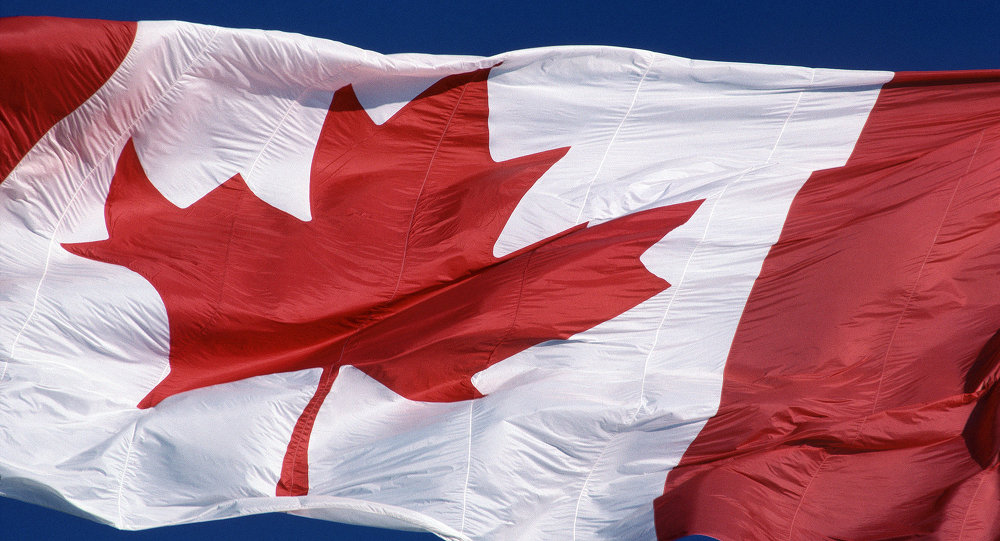
Ontario’s Supreme Court issued a verdict to confiscate two buildings owned by the Islamic Republic. Tens of millions of dollars obtained through selling these Iran-owned buildings will be paid to the victims of terrorist attacks by Iran-backed groups.
These two Iran-owned buildings in Toronto and Ontario have been reportedly sold for $28 million and the money will be given to the victims of Hamas and Hezbollah.
One of the buildings – the Cultural Center of Iran close to Ottawa University – was sold for $26.5 million to a construction company from Montreal. The other was the building of the Center for Iranian Studies, chaired by one of the officials from Iran’s Embassy in Canada and it was sold for $1.85 million.
Iranian officials have pledged to retaliate by confiscating Canada’s properties. The Chief Justice of Iran’s Judiciary Ebrahim Raisi said that if Iran’s confiscated properties are not released, the Islamic Republic will follow up on the issue through international judicial organizations to seize and confiscate Canadian properties. Heshmatollh Falahatpishe, a Member of National Security and Foreign Policy Commission of Iran’s Parliament, too said that Canadian ships and goods that intend to pass through the Strait of Hormuz must be seized.
In 2016, Ontario’s Court had ordered that $13 million of Iran’s non-diplomatic properties be paid as compensation to families of US victims in hostage-taking operations and attacks that took place from 1983 to 2002 in Argentina, Israel, Lebanon, and Saudi Arabia.
Sputnik
RFI
Iran’s Judo Federation banned for not facing Israel
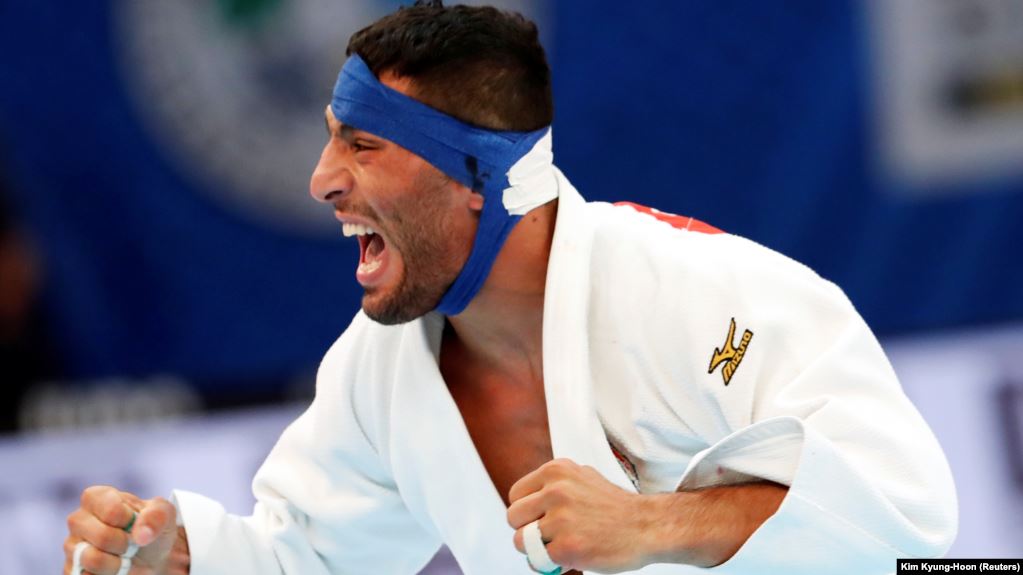
The International Federation of Judo officially announced that Iran’s Judo Federation has been suspended and banned from taking part in world competitions.
The reason for this disciplinary measure is that the Iranian Judo Federation recently forced Saeid Molaei in Japan to lose an early match so that he would not have to face an Israeli competitor. Molaei, Iran’s Judo champion, went to Germany after the competition in Japan and said he does not intend to go back to Iran.
The Disciplinary Commission of the Judo Federation that has banned Iran has highlighted similar cases during Olympic matches in 2004. It has stressed that there are strong reasons to believe that the Iranian Federation will commit such violations again.
Saeid Molaei has said that by the order of the Islamic Republic’s officials and under their pressure, he had been forced to lose three times so that he wouldn’t have to face an Israeli athlete.
Due to the policies of the Islamic Republic, Iranian athletes have to avoid facing Israeli athletes, which has repeatedly caused trouble for Iranian sport in the international community.
In 2018, the Iranian Supreme Leader had told Iranian athletes: “Don’t let them scare you. Don’t let them tell you that if you don’t compete, this or that international federation or organization will get upset. The hell with them being upset! They cannot do a damn thing!”
Radio Farda
Tens of workers beaten, arrested by security forces
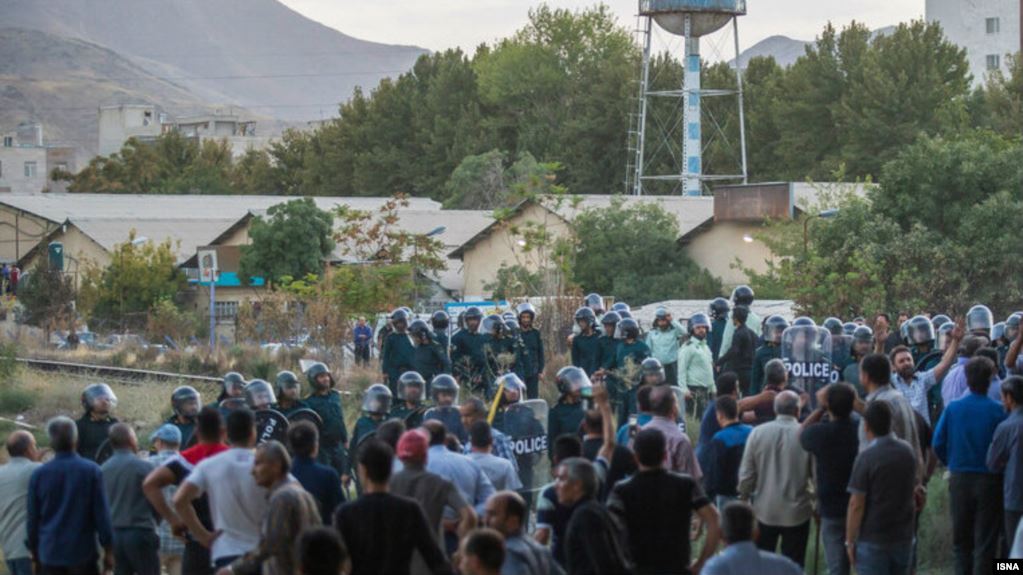
Iran’s Security Forces have reportedly arrested 40 protesting workers of the HEPCO Company, a private industrial complex in the central city of Arak, and about 20 workers were injured due to the special unit’s attack.
These workers had blocked Iran’s north-south railway for 19 hours as they protested against their unpaid wages as well as the privatization of their company. Around 900 workers participated in the protest.
HEPCO’s workers haven’t received their salaries for the past two months, and there are still belated payments from 2016, 2017, and 2018. The company’s production has dropped to under 20% and the assembly department has shut down.
HEPCO’s workers had repeatedly held gatherings to protest issues like not being paid. Some workers were sentenced to imprisonment before. Protesters have objected to the privatization of this company, asking for it to be re-nationalized.
Workers of a number of other factories and manufacturing units that have been entrusted to the private sector, too, have demanded re-nationalization. Officials, however, defend entrusting these industries to the private sector.
Radio Farda
Radio Zamaneh
Iran to expand its gas field in the Gulf
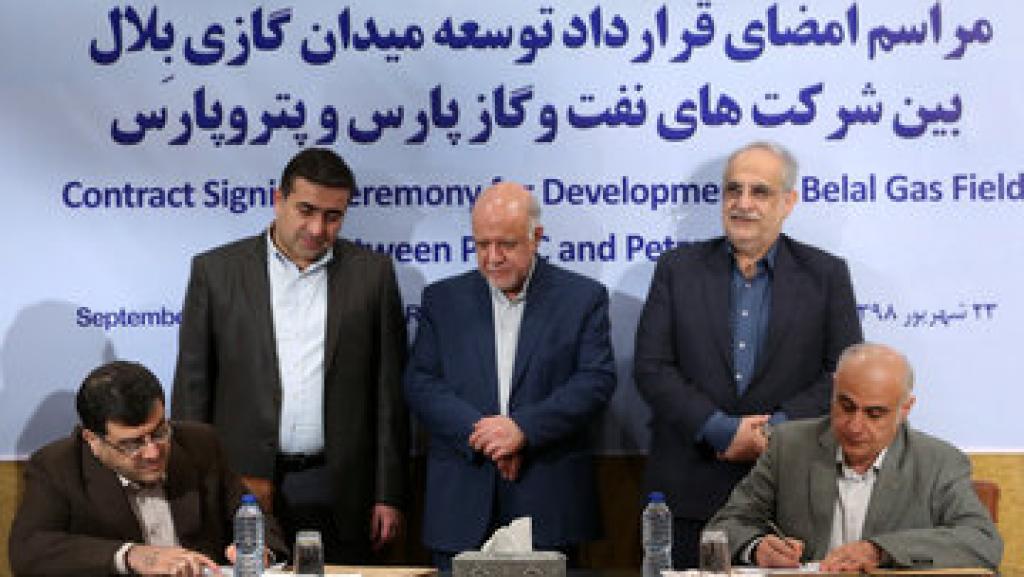
The Iranian Oil Minister Bizhan Zanganeh announced signing a contract with an Iranian company to expand the Balal gas field in the Gulf worth $440 million.
The contract was signed between Pars Gas and Oil Company and PetroPars Company. Zanganeh said that signing this contract shows that “sanctions haven’t stopped us”.
According to the oil minister, the contract’s duration is 24 months, making possible the production of 500 million square feet of rich gas per day. The Balal gas field is located in the eastern part of South Pars Gas Field, 90km western south of the Lavan Island in the Gulf.
Signing the contract with an Iranian company takes place at the time when foreign oil companies including France’s Total have left Iran after US sanctions against Iran were re-imposed.
RFI
